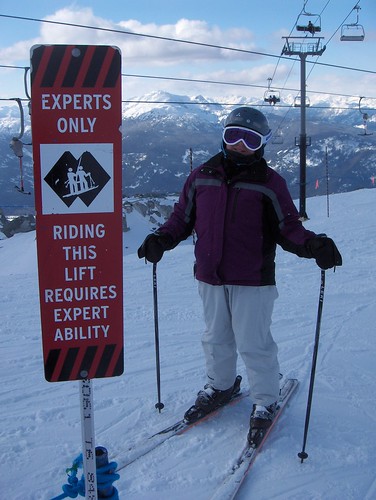In a conference panel presentation on the crafting of public policy and the policy discussion, the floor is opened to questions from the audience.
Throughout the conversation, mention has been made of how new technologies have opened up pathways for dialogue between policymakers and citizens toward the goal of a more democratic society.
In this vein, an audience member steps up to the microphone and suggests the possibility of crowdsourcing a policy on something like telecommunications or open government policies. “Wouldn’t something like this be the ultimate in democracy?” he asks.
It is a fair question given the direction of the conversation up to this point. The answer, though, is better than the question. It is a stark reminder that, despite the proliferation of information, some of us know things other people don’t.
“I’m not sure how that would work,” one of the panelist responds, “and I think it’s a good idea to remember there are experts on these topics who understand the nuance of these issues.” She points to two fellow panelists who have worked at the highest levels of city and federal government. “I’m glad that we have people like these to whom we can turn for these complex issues.”
In the schools we need, it’s important to remember experts are acceptable.
The most obvious application of this principle is to the role of teachers. In an infopresent age, it is tempting to suggest the death of the expert. When anything from auto repair to ordination can be found within seconds, the roll of the teacher could appear to be hazy. In truth, it has never been more important to bring precision to what we see as the place of the teacher in learning spaces. Those who have paid lip service to their rolls as “facilitators of learning” and “helping students on journeys of discovery” while retaining teaching practices that feature long lectures and worksheets will be forced to decide whether they pass their own muster.
John Dewey had designs on such a role in his thinking on education as he maintained the need for an authority in children’s lives as they learned to help guide them in finding questions worth asking and materials worth utilizing. Learners need experts.
Dewey’s other major goal for education – the crafting of educational experiences – is also more within reach than ever before. Tools and connectivity mean students can take on roles as junior experts in areas they find interesting without committing to a full journeyman model that has then apprenticing for nearly a decade to vocations that they’re only interested in as hobbies.
Here too, experts are valuable. They offer a bar for comparison as students mess about in learning experiences. These bars help students remember they are not experts after completing what David Perkins refers to as the “junior version of the game.” Yes, they’ve gained understanding and ability after participating in the aquisition and synthesis of knowledge, but there’s always more work to be done, and there’s always someone to learn from.
Experts are valuable in the sense that the panelists pointed out in response to the questioner. They help us to navigate some of the more complex nuances of the issues and problems we try to solve. They’re helpful in the classroom in helping to find the right questions to ask and in the organization of learning experiences. Perhaps most importantly, experts help us to understand what we don’t know in a straightforward sense and as a basis for comparison in our own development. The schools we need see and appreciate each of these expert spaces, and the adults and children in these schools know when to turn to experts as they work to turn into experts.

I agree! But continue to struggle with the word ‘expert’ and the implied finality of the term – the idea that an ‘expert’ is someone of a certain age with answers to the questions the rest of us are pursuing. David Jardine has written an interesting piece about ‘expert’ vs. ‘experienced’ http://galileo.org/teachers/designing-learning/articles/the-experienced-teacher/ where he talks about how “the “expert” can be portrayed as the one who already knows and therefore as the one who is ready to simply dispense what they know to those who do not know, a moments notice, and with great ease and confidence. The experienced person, on the contrary, is someone who is ready for new experiences because of the experiences they have already undergone. ” Interested in your thoughts!
Deidre, on the issue of finality, I was talking with Darren Kuropatwa this weekend about expertise. He brought up an article (that I can’t put my hands on now) that said an expert was someone who didn’t see their knowledge as final, but realized the questions still needing asking. That’s where my thinking leans. Experts know stuff, and know enough to keep asking more.